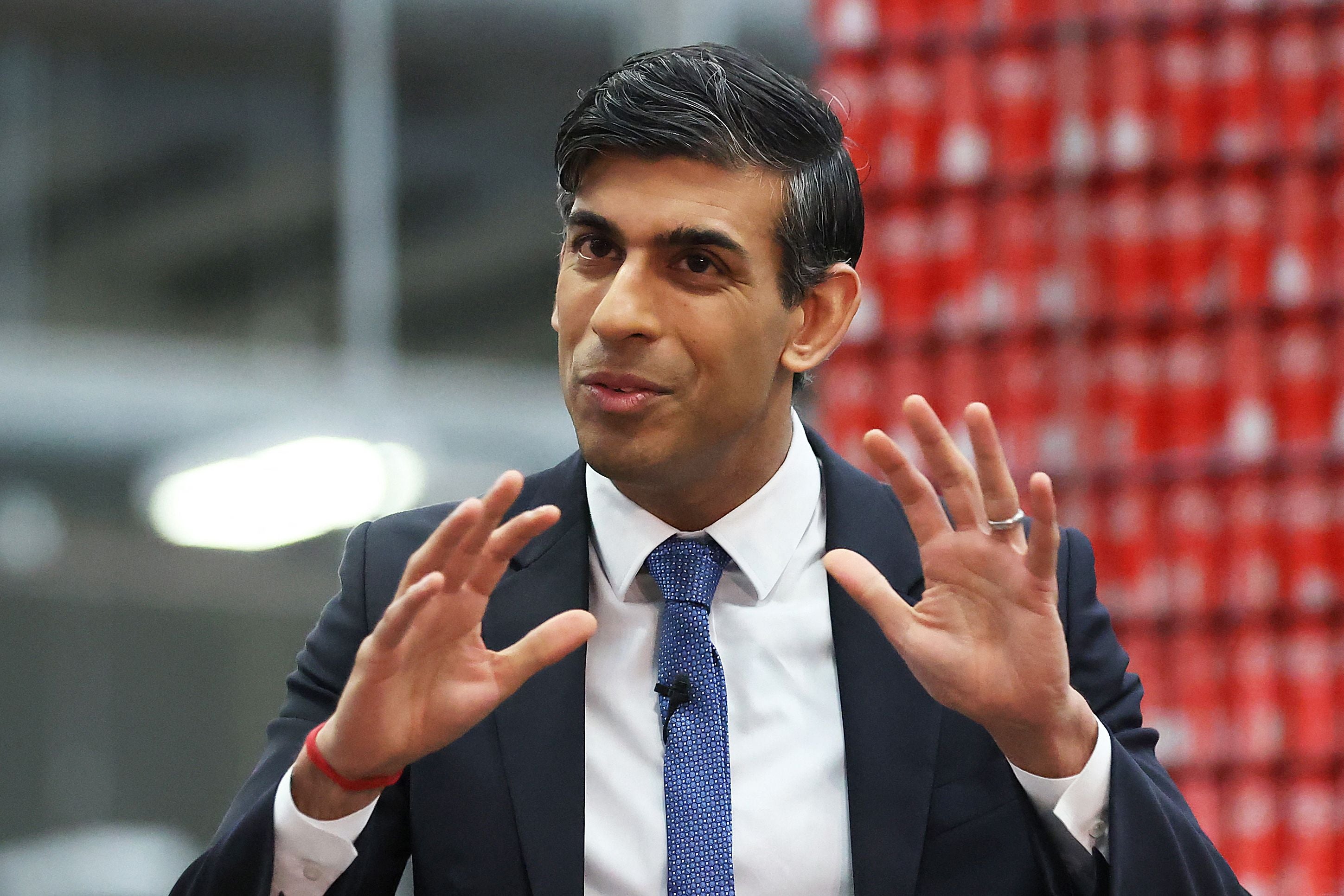Could this be the turning point of Rishi Sunak’s premiership?
If he can solve the small boats crisis and the problems with the NHS, it would give him a pitch for the election, asks John Rentoul


European Union leaders said it was impossible that Northern Ireland could be allowed to diverge from its single market rules. But that is what they have agreed. They said there could be no question of re-opening, rewriting or renegotiating the treaty containing the Northern Ireland protocol. But it will now be rewritten.
Rishi Sunak has secured a deal that has surprised everyone. Even Steve Baker, the self-styled Brexit hard man who “thought it quite likely that I could have to quit” on Sunday, said that the terms were such an “amazing achievement” he forgot that he had not been trusted enough, as a Northern Ireland minister, to be part of the final negotiations.
It is a remarkable achievement for Sunak to have come so far, although as so often in Northern Ireland negotiations, a historic breakthrough is not the end of the matter. The crucial question is whether the DUP will go back into government at Stormont. I think that it probably will, but Sir Jeffrey Donaldson is obviously going to take his time.
So the deal could still go awry, and even if devolved government is restored, Sunak won’t be given much credit by a grudging electorate in the rest of the UK. It doesn’t matter to them that people in Northern Ireland can buy the same sausages in their supermarkets that they can.
But Sunak could enjoy a halo effect, as he basks in praise from all quarters for his competence and imagination. It seems likely that the voters would prefer to have someone who can solve problems as prime minister, even if he hasn’t solved the ones most directly affecting them. Because if he can solve the insoluble problems in Northern Ireland, they might think that he could find a way through the other impossible problems that matter to them more.
Opinion polls suggest that there are three issues that people think are important, and each of them is “impossible”: the economy, the NHS and the small boats. On the economy, the Conservatives are struggling with the legacy of Liz Truss’s seven weeks in office, against a background of people feeling worse off than they were at the last election. If Sunak and Jeremy Hunt get lucky with inflation and the public finances, they might be able to claw back some of that ground and secure it with a pre-election tax cut. Especially if Keir Starmer continues to sound like Truss: talking about growth but with no convincing plan to achieve it.
On the NHS, there are signs that Sunak the negotiator may be able to strike again. If the government can agree a pay deal with the nurses, that would make it easier to get to grips with the waiting lists. But it is going to be difficult to secure significant improvements in the 18 months before the election, and if the government does give the nurses more money everyone will ask why they didn’t do that in the first place and save us the extra pain.
Finally, the Channel crossings look like another issue that might be amenable to Sunak’s skills of careful negotiation and attention to policy detail. But if the Northern Ireland protocol looked like an impossible problem, the small boats could be an even more difficult problem to solve.
Kit Malthouse, who was briefly education secretary in Truss’s government, and who was the author of the January 2019 “compromise” designed to make a hard Brexit compatible with an open border in Ireland, came up with an ingenious plan this weekend. He suggested that Britain and France should agree a swap scheme, which would allow Britain to return anyone who crossed in a small boat, but in exchange for each one, Britain would take one “genuine refugee within France who wants to be settled in the UK”.
In practice, this would mean no one would try to cross the Channel, knowing that they would go straight back to France, and therefore it would not require Britain to take any additional refugees. There is, therefore, nothing to be gained by France by such a deal, but Malthouse has identified a possible key to the problem: if the French government did have a sufficient incentive to agree an immediate returns policy, the boats would stop.
This is where Sunak’s improved relations with EU leaders, including Emmanuel Macron, could pay further dividends. It was the change from Boris Johnson, the “bad faith prime minister”, as they saw him, that made the Windsor deal possible. In the past, the idea that France might agree to take back people who had crossed the Channel in small boats has always seemed “impossible”. But if Sunak could make that happen he would have solved the problem at a stroke.
It was striking that the prime minister said yesterday in the Commons, “The UK is and will remain a member of the European Convention on Human Rights,” contradicting speculation, including by me, that he was serious about threatening to leave. If he could do a returns deal with Macron, he wouldn’t need to.
The wider significance of the Windsor deal, therefore, is that it suggests that Sunak could change the terms of political trade over the next 18 months. If he can solve difficult problems about which the voters care, it would give him a pitch for the election: I solve the problems of today, whereas Labour offers platitudes about the challenges of the years to come.






Join our commenting forum
Join thought-provoking conversations, follow other Independent readers and see their replies
Comments